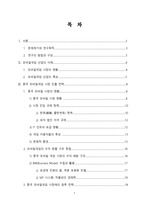

PARTNER
검증된 파트너 제휴사 자료
지속가능한 일자리 창출을 위한 생태계와 플랫폼 비즈니스 (Ecosystem and Platform Business for Sustainable Job Creation)
13 페이지
최초등록일 2025.03.19
최종저작일
2019.11

-
서지정보
· 발행기관 : 한국경영컨설팅학회
· 수록지 정보 : 경영컨설팅연구 / 19권 / 4호 / 263 ~ 275페이지
· 저자명 : 정진섭, 고경일
초록
최근 해외경제의 위축과 더불어 국내 경제의 성장저하 등으로 인해, 한국 정부가 국민의 행복한 삶을 위해 추진하는 포용성장 정책이 어느 정도 한계를 보이고 있다. 그리고 이러한 결과 정부의 핵심과제인 일자리 창출도 성과 창출이 나타나지 않고 있다. 과거 한국 경제는 자동차, 조선, 중화학공업 등을 중심으로 수출이 증가되고, 이에 따라 일자리도 자연스럽게 창출되었다. 그런데, 그러한 과거의 방식으로 경영하는 기업들이 이제는 한계를 보이고 있다. 무엇보다도 급격한 디지털화의 진행으로 새로운 4차 산업혁명의 시대가 찾아왔고, 기업의 경영방식도 예전과 달라졌다. 단순히 일자리의 숫자를 증가시키려는 정책을 수립하고 이러한 방향으로 기업을 독려해서는 지속가능한 경쟁력 확보 및 일자리 창출이 어려워진 것이다. 따라서 먼저 “지속가능발전 또는 지속가능경영”에 대해 고찰하고, 최근 대두되는 “산업 생태계”가 무엇인지, 그리고 “플랫폼”은 무엇이며, 어떻게 지속가능한 기업, 지속가능한 일자리 창출을 실현시킬지 탐색해보고자 하는 것이 본 연구의 목적이다. 특히, 과거 조선산업의 영화를 누리다가 쇠퇴를 경험하고, 청정에너지와 바이오, 정보기술(IT) 등 지식기반 산업도시로 탈바꿈한 스웨덴의 말뫼 사례를 통해, 성공적인 산업생태계의 재생에 대해 고찰하였으며, 이를 통해 현 한국의 상황에 대한 시사점을 찾고자 했다. 또한, AHP를 활용한 실증분석을 통해 지속가능한 일자리 창출을 위한 요소들의 중요성도 고찰해보았다. AHP 분석의 결과, 산업 생태계, 일자리 창출 인프라, 투자유치활성화, 매출/수익증대, 기업 경쟁력으로 구성된 1단계에서는 산업 생태계(0.474)가 가장 중요하게 나타났으며, 2위는 기업 경쟁력(0.154), 3위는 일자리 창출 인프라(0.137)로 나타났다. 2단계 세부 항목에서는 비즈니스 생태계(1위, 0.201), 지식창출 생태계(2위, 0.095), 뛰어난 리더(3위, 0.065)로 나타났다. 결론 부문에서는 연구목적과 관련된 핵심적 시사점도 제시하였다.영어초록
Due to the recent contraction of the overseas economy as well as the domestic economy's slow growth, the engagement growth policy pursued by the Korean government for the people's happy lives has shown some limits. And as a result, the government's core task, job creation, is not showing up either. In the past, Korea's economy saw its exports increase, mainly in automobiles, shipbuilding and heavy and chemical industries, and jobs were created naturally. However, companies that operate in such a past way are now showing limitations. Most of all, the rapid progress of digitalization has brought about a new era of the fourth industrial revolution, and the way companies are managed has also changed from before. By simply establishing policies to increase the number of jobs and encouraging companies in this direction, it has become difficult to secure sustainable competitiveness and create jobs. Therefore, the purpose of this study is to first consider "sustainable development or sustainable management," to explore what the emerging "industrial ecosystem" is, and how to realize sustainable business and sustainable job creation. In particular, through the case of Malmö, Sweden, which experienced the decline of the shipbuilding industry in the past and transformed it into a knowledge-based industrial city such as clean energy, biotechnology, and information technology (IT), the successful reproduction of the industrial ecosystem was considered. And through this case study, we tried to find out the implications for the current situation in Korea. In addition, through the empirical analysis using AHP (Analytic Hierarchy Process), the importance of factors for creating sustainable jobs was examined. As a result of the AHP analysis, the industrial ecosystem (0.474) was the most important in the first stage consisting of the industrial ecosystem, job creation infrastructure, investment attraction, sales / return, and corporate competitiveness. In addition, the second place is company competitiveness (0.154) and the third place is job creation infrastructure (0.137). In the second stage, the business ecosystem (1st, 0.201), knowledge creation ecosystem (2nd, 0.095), and outstanding leaders (3rd, 0.065) were found. The conclusion section also presents key implications related to the research purpose.참고자료
· 없음태그
-
자주묻는질문의 답변을 확인해 주세요

꼭 알아주세요
-
자료의 정보 및 내용의 진실성에 대하여 해피캠퍼스는 보증하지 않으며, 해당 정보 및 게시물 저작권과 기타 법적 책임은 자료 등록자에게 있습니다.
자료 및 게시물 내용의 불법적 이용, 무단 전재∙배포는 금지되어 있습니다.
저작권침해, 명예훼손 등 분쟁 요소 발견 시 고객센터의 저작권침해 신고센터를 이용해 주시기 바랍니다. -
해피캠퍼스는 구매자와 판매자 모두가 만족하는 서비스가 되도록 노력하고 있으며, 아래의 4가지 자료환불 조건을 꼭 확인해주시기 바랍니다.
파일오류 중복자료 저작권 없음 설명과 실제 내용 불일치 파일의 다운로드가 제대로 되지 않거나 파일형식에 맞는 프로그램으로 정상 작동하지 않는 경우 다른 자료와 70% 이상 내용이 일치하는 경우 (중복임을 확인할 수 있는 근거 필요함) 인터넷의 다른 사이트, 연구기관, 학교, 서적 등의 자료를 도용한 경우 자료의 설명과 실제 자료의 내용이 일치하지 않는 경우
“경영컨설팅연구”의 다른 논문도 확인해 보세요!
-
지방공기업의 사회적 가치 확산 전략 : 인적자원관리 분야를 중심으로 8 페이지
기업의 복수목적론에 의하면 기업은 경제적 목적 뿐만 아니라 사회적 목적을 달성해야 한다. 사회적 목적 달성에 대한 연구가 과거 기업의 사회적 책임 연구분야에서 주로 다루어졌으나, 최근에는 기업의 사회적 가치에 대한 논의가 활발하게 이루어지고 있다. 정부 업무를 대행하는 공기업은 수익성보다 공공성을 더욱 중요하게 추구해야 한다는 점에서 공기업의 사회적 가치 .. -
강하게 균형을 이룬 조직문화, 인적자원개발의 효과성과 조직성과 사이의 관계 12 페이지
본 연구는 강하게 균형을 이룬 조직문화, 인적자원개발 효과성, 조직성과 사이의 관계를 분석하였다. 이를 위해 강하게 균형을 이룬 조직문화가 조직성과에 미치는 영향에 대한 가설을 설정하였다. 그리고 인적자원개발의 효과성과 조직성과와의 관계에 대한 가설을 설정하였다. 마지막으로 강한 조직문화와 인적자원개발의 효과성이 동시에 높은 조직이 그렇지 않은 조직보다 높..
찾으시던 자료가 아닌가요?
지금 보는 자료와 연관되어 있어요!
문서 초안을 생성해주는 EasyAI


